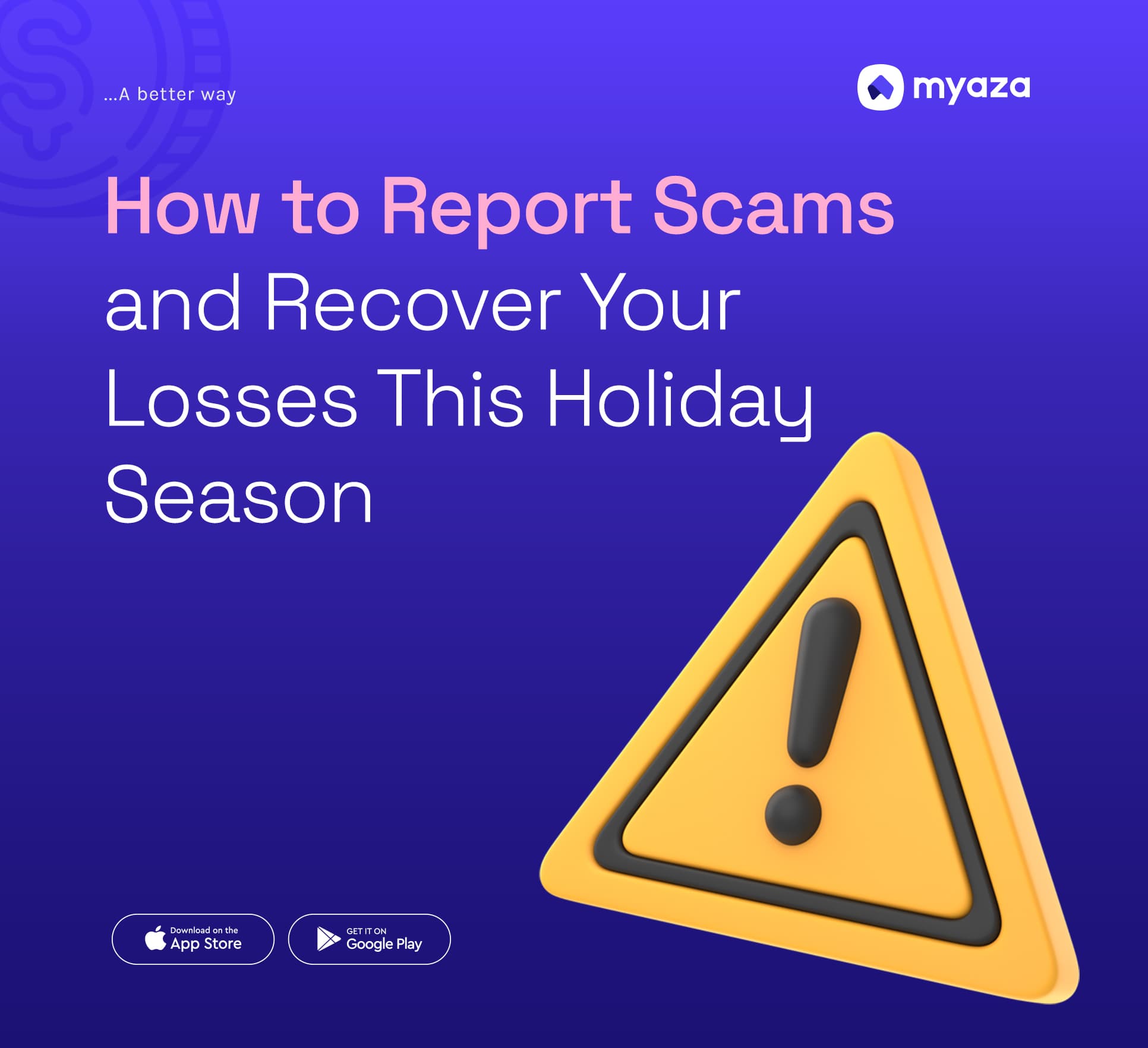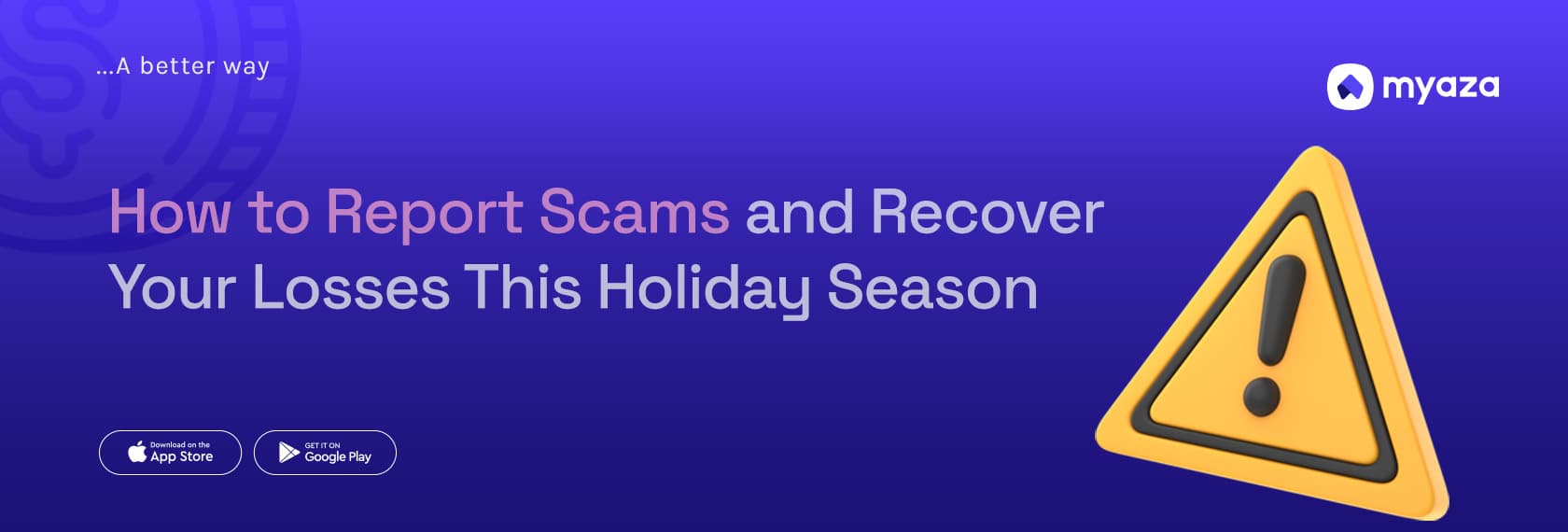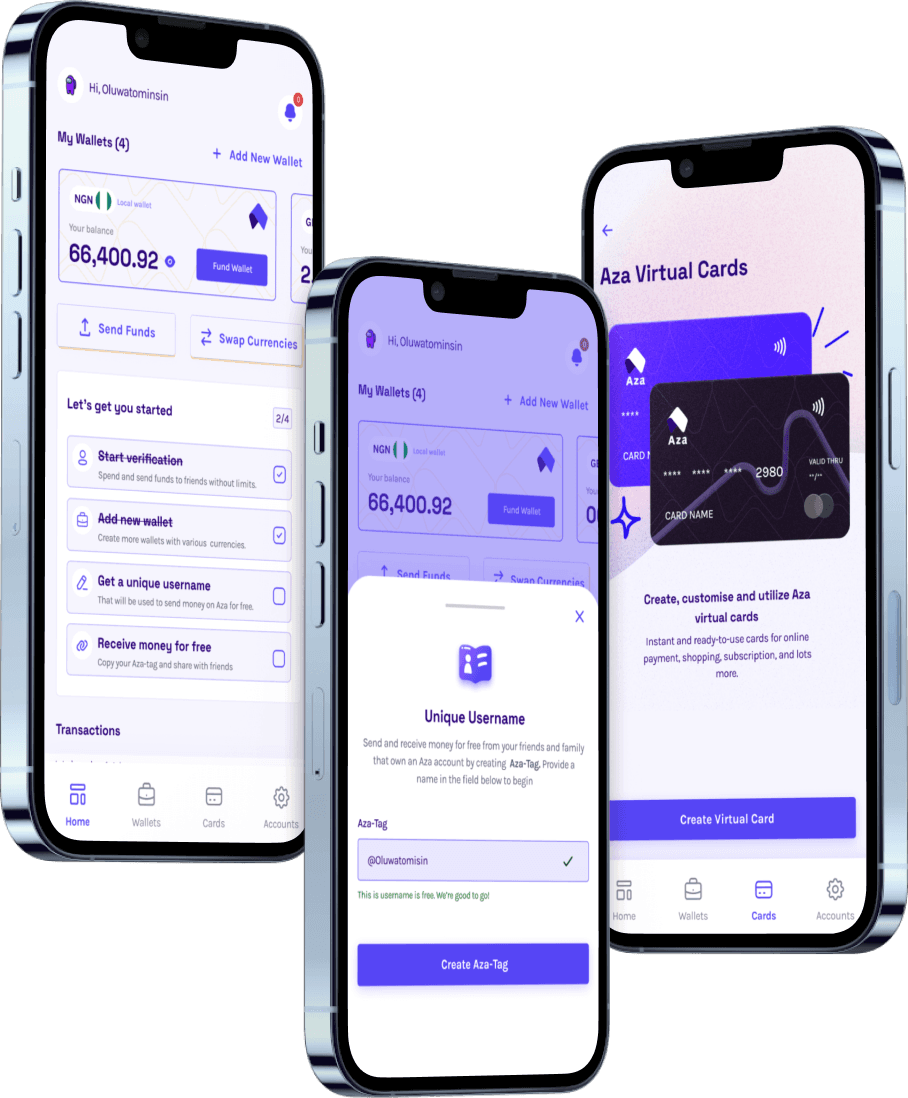How to Report Scams and Recover Your Losses This Holiday Season

The festive season is a time for joy, celebrations, and gift-giving, but it’s also a prime hunting ground for scammers. With everyone shopping, making travel plans, and sharing the holiday spirit, fraudsters see an opportunity to exploit people’s goodwill, distractions, and urgency.
These scams can be devastating, ranging from financial loss to identity theft, but with awareness and proactive steps, you can outsmart them.
Here’s an expansive guide to understanding holiday scams, how they work, and, most importantly, how to protect yourself and your loved ones this festive season.
Types of Festive Season Scams
1. Fake Online Stores
During the holidays, you’ll likely come across social media ads or emails promoting amazing deals that seem too good to be true. These scams direct you to fake websites designed to mimic legitimate stores. Victims often pay for items that never arrive, and in some cases, scammers steal credit card information.
How to Spot It:
URLs with slight misspellings (e.g., “amaz0n.com” instead of “amazon.com”).
Deals that are significantly lower than market prices.
Absence of secure payment methods like PayPal or encrypted credit card forms.
Protect Yourself:
Always shop on trusted websites.
Look for “https://” in the URL and a padlock icon in the address bar.
Read reviews and verify the website’s legitimacy through third-party sites like Trustpilot.
2. Phishing Emails and Messages
Phishing scams spike during the holidays, with fraudsters sending emails or texts posing as trusted brands, delivery services, or even government agencies. These messages often contain links that lead to fake websites designed to steal personal information.
How to Spot It:
Messages that urge you to act quickly (e.g., “Your package is delayed, click here to resolve it!”).
Suspicious sender addresses that don’t match the official brand (e.g., support@amazn-sales.com).
Attachments or links asking for personal or financial details.
Protect Yourself:
Avoid clicking links in unsolicited messages.
Hover over links to see where they lead before clicking.
Use official apps or websites to verify messages.
3. Charity Scams
The season of giving is also when scammers exploit your generosity by creating fake charities. These scams often appear as heart-wrenching stories or crowdfunding campaigns, asking for donations that never reach those in need.
How to Spot It:
High-pressure tactics urging you to donate immediately.
Vague details about the organization or beneficiaries.
No tax identification number for registered charities.
Protect Yourself:
Research charities on platforms like Charity Navigator or GuideStar.
Donate directly through official charity websites, not third-party links.
Be cautious of crowdfunding campaigns unless you know the organizer personally.
4. Gift Card Scams
Gift cards are a popular holiday gift, and scammers have found ways to exploit this trend. They may sell counterfeit cards, steal funds from legitimate cards, or pressure you into paying with gift cards for fake fines or services.
How to Spot It:
Unusual requests for payment via gift cards (e.g., from someone claiming to be from law enforcement).
Sellers offering heavily discounted gift cards on unofficial platforms.
Cards with scratched-off PINs or tampered packaging.
Protect Yourself:
Buy gift cards only from trusted retailers.
Inspect the packaging for signs of tampering.
Never share gift card numbers or PINs with anyone you don’t trust.
5. Social Media Giveaways and Contests
You’ve probably seen those posts: “Share this and win a free iPhone!” or “Follow us and win $10,000!” While some are legitimate, many are designed to collect personal information or trick you into sharing malware.
How to Spot It:
Unrealistic prizes that seem too good to be true.
Accounts with few followers or a lack of official verification.
Requests for personal information to claim your prize.
Protect Yourself:
Verify contests directly with the official brand or website.
Avoid sharing personal details like your address or bank information.
Report suspicious accounts to the social media platform.
6. Travel Scams
With many people traveling during the holidays, scammers target unsuspecting vacationers with fake travel deals, rental properties, and airline ticket offers.
How to Spot It:
Discounts that are significantly cheaper than other offers.
Unverified rental properties with no reviews or photos.
Requests for payment via wire transfer or peer-to-peer apps.
Protect Yourself:
Book through reputable travel agencies or platforms.
Cross-check rental property listings on multiple platforms.
Use payment methods with buyer protection, like credit cards or PayPal.
7. Scams Targeting Myaza Users and Digital Payment Platforms
With the rise of digital payment platforms like Myaza, scammers have adapted their tactics to exploit users through phishing attempts, fake customer service, and fraudulent accounts. These scams can be particularly convincing, as they mimic the look and feel of the Myaza interface.
Common Scams Targeting Myaza Users:
Phishing Emails or Texts: Fraudsters send fake messages claiming there’s an issue with your Myaza account, asking you to click a link to verify your details.
Fake Customer Service: Scammers create fake Myaza social media profiles or websites, offering “help” but asking for sensitive information or payment details.
Fraudulent Transactions: Scammers pose as buyers or sellers on platforms connected to Myaza and trick users into sending payments for fake goods or services.
How to Spot It:
Messages or emails that don’t come from an official Myaza domain (e.g., support@myaza.com).
Unsolicited requests for personal details, login credentials, or PINs.
Social media accounts without verification or with suspiciously few followers.
Protect Yourself:
Only interact with Myaza through official channels and apps.
Enable two-factor authentication on your Myaza account.
Never share your Myaza account details, PINs, or OTPs with anyone.
Verify the identity of buyers or sellers before completing transactions.
What to Do If You’re Targeted: If you suspect a scam involving your Myaza account, immediately contact Myaza's customer support through their official website or app. Report the fraudulent activity and secure your account by changing your password and monitoring recent transactions.
General Tips to Stay Safe
Secure Your Devices: Ensure your phone, tablet, and computer have updated antivirus software. Use strong, unique passwords for online accounts, and enable two-factor authentication where possible.
Monitor Bank Statements: Regularly review your bank and credit card statements for unauthorized transactions. Report suspicious activity immediately.
Be Wary of Public Wi-Fi: Avoid accessing sensitive accounts or making purchases over public Wi-Fi. Use a virtual private network (VPN) for added security.
Educate Family Members: Scammers often target elderly relatives who may be less tech-savvy. Share this guide and teach them how to recognize red flags.
Report Scams: If you encounter a scam, report it to local authorities, the e-commerce platform, or your financial institution. This helps prevent others from falling victim.
What to Do If You’re Scammed
If you suspect you’ve fallen victim to a scam, act quickly:
Report to the Platform: If the scam involves platforms like Myaza, contact their customer support immediately through official channels.
Contact Your Bank or Card Issuer: Notify your bank or the payment service you used to make the transaction. Request a chargeback or reversal if the scam involved a payment.
Change Your Passwords: Update login credentials for all affected accounts.
File a Police Report: Provide all details about the scam to your local law enforcement.
Report to Relevant Agencies: Depending on your location, notify agencies like the Federal Trade Commission (FTC) or local consumer protection offices.
Document Everything: Keep records of all interactions with the scammer, including emails, messages, and transaction receipts. This documentation may be crucial for investigations and recovering funds.
Warn Others: Share your experience with friends, family, or online communities to prevent others from falling victim to the same scam.
Stay Vigilant Post-Scam: Monitor your accounts for further unauthorized activity and consider freezing your credit if necessary to prevent identity theft.
Final Thoughts
The festive season is a time for joy, connection, and celebration, but it's also a peak time for scammers to exploit unsuspecting individuals. By staying informed about common scams, adopting safe online practices, and being cautious with your personal and financial information, you can protect yourself and your loved ones.
Remember, no deal is worth compromising your safety. Trust your instincts, verify before you act, and educate yourself on the latest threats. If you encounter or fall victim to a scam, act quickly and report it to the appropriate authorities or platforms like Myaza.
This season, let the spirit of giving and togetherness prevail—minus the worries of fraud. Stay vigilant, stay safe, and have a truly happy holiday season!


